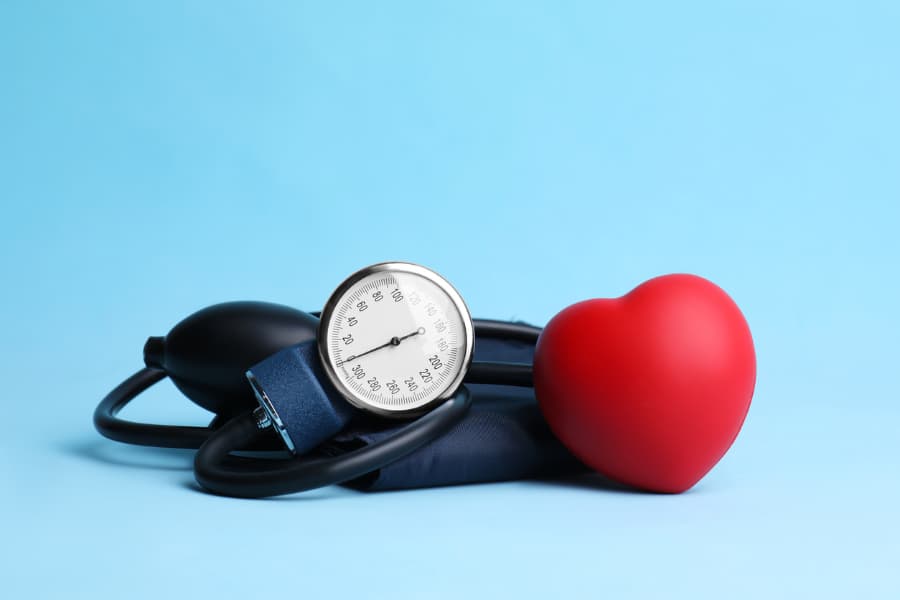Hypertension, also known as high blood pressure, and kidney disease are closely linked conditions. Patients with one of these conditions commonly experience symptoms of the offer. If left untreated, these conditions pose a serious threat to the overall well-being of a person, making management critical.
Richmond University Medical Center’s Nephrology Department in Staten Island, New York, provides comprehensive care to those who have been diagnosed with conditions like high blood pressure or diabetes, which can impact kidney health. Here, we discuss ways to effectively manage hypertension and kidney disease.
The Connection between Hypertension and Kidney Disease
High blood pressure is the second leading cause of kidney failure in the United States, according to the National Kidney Foundation. Over time, uncontrolled high blood pressure causes the arteries in and around the kidneys to constrict, causing them to narrow, weaken, or harden. When this happens, blood flow to the kidneys is reduced, preventing the kidneys from receiving the oxygen and nutrients they need to work well.
If the kidneys become impaired, they are not able to effectively remove all wastes and extra fluid from the body. The extra fluid in the blood vessels can raise blood pressure even more, creating a dangerous cycle. The increased threat of high blood pressure can cause even more damage, leading to kidney failure. It is estimated that around one in five adults in the U.S. with high blood pressure has chronic kidney disease, as well.
Managing Hypertension
Hypertension is a condition that occurs when the pressure in blood vessels and arteries is higher than it should be. The Food and Drug Administration classifies high blood pressure (stage 1) as 130 mm Hg over 80, with the top number being the systolic pressure and the bottom number being the diastolic pressure. Stage 2 high blood pressure is 140/90 or higher. A person with a blood pressure reading of 180/120 or higher is considered to be in a state of hypertensive crisis and should seek medical attention right away.
Nearly half of all adults in the U.S. have hypertension. Managing hypertension involves personalized treatment and preventative measures, including:
Hypertension Treatment
To determine the correct course of action for treating hypertension, physicians will first try to uncover the cause of the condition. With this information, medical professionals can prescribe patients the right class of medication for their situation.
Various blood pressure medications work in different ways. Some medications help to lower blood pressure by relaxing the artery walls, while other medications reduce blood pressure by decreasing the heart rate. Others flush added sodium out of the body through the urine to control blood pressure.
Hypertension Preventative Measures
Patients can incorporate a variety of preventative measures into their daily routines to help prevent or slow the condition, such as:
- Refrain or quit smoking
- Maintain a healthy weight
- Engage in regular exercise (20 minutes of low-impact experience two to three times per week)
- Eat a nutritious diet
- Undergo blood pressure screenings every two years starting at age 18
Managing Kidney Disease
The kidneys are tasked with the important role of filtering excess toxins and waste out of the body. Chronic kidney disease is a condition where the kidneys are damaged and can no longer filter blood properly. This can result in waste building up in the body, leading to a wide range of other health concerns, including high blood pressure.
Chronic kidney disease generally does not produce symptoms until the disease has progressed. Therefore, it is important to effectively manage kidney disease while it is in its early stages with treatment and preventative measures, such as:
Kidney Disease Treatment
When the kidneys are no longer able to successfully filter waste, dialysis is a common course of action. Although it is not a treatment, it is an effective replacement of kidney function so that the body can survive in the meantime. Dialysis is commonly used while a patient waits for a kidney transplant.
Kidney Disease Preventative Measures
Chronic kidney disease can be managed with healthy lifestyle changes, including:
- Consuming alcohol in moderation
- Eating a healthy diet that limits protein, potassium, and sodium
- Exercising regularly
- Quitting smoking
- Keeping at an optimal weight
Comprehensive Care at Richmond University Medical Center
Patients concerned about hypertension or chronic kidney disease can find compassionate support and advanced services at Richmond University Medical Center. Staying engaged in the latest research and treatments, our nephrology team is dedicated to providing top-quality care to members of the Staten Island community. Contact us today for more information on managing chronic kidney disease and hypertension, or to schedule an appointment.




